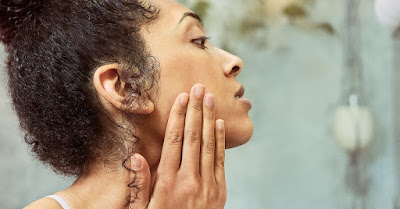Clinical Results Evaluating the Effectiveness of Complementary Treatments for Acne
There are a host of acne skin care
options on the market today, ranging from oral antibiotics to
over-the-counter treatments to prescription medications to complementary
and alternative medicine (CAM).
The latter is an emerging, almost counter-culture approach to acne management that treats skin with herbal medicine, acupuncture, or dietary modifications instead of conventional medication. However, there is a lack of clinical evidence demonstrating the effectiveness of CAM therapies, making it hard to know whether it’s a viable treatment option.
A 2015 meta-analysis of 35 studies and 3,227 participants tried to address this gap by evaluating the effectiveness of six CAM therapies, including herbal medicine, acupuncture, cupping therapy, diet, purified bee venom (PBV), and tea tree oil.
Their primary objective focused on evaluating the “improvement of clinical signs assessed through skin lesion counts,” which included inflammatory lesions, change in skin lesions, and change in acne severity.
The research, published in The Cochrane Database of Systematic Reviews, concluded the following:
The results of this 35-study meta-analysis can help guide consumers interested in a natural acne treatment while avoiding the pitfalls of misleading marketing claims.
When exploring options to control acne without harsh chemicals and toxins effectively, look for products with natural ingredients that are proven effective, such as tea tree oil or pollen bee venom. Other natural ingredients include:
About True Botanicals
True Botanicals believes in pure and potent skin care treatments that are proven with independent clinical trials. Their high-performing formulas are designed to nourish, replenish, soothe, and hydrate skin with botanical extracts, vitamins, antioxidants, and essential oils. True Botanicals’ products are made with independently certified-nontoxic ingredients and are gluten-free, non-GMO, cruelty-free, and Leaping Bunny certified.
Browse the entire line of nontoxic skin care products at Truebotanicals.com
The latter is an emerging, almost counter-culture approach to acne management that treats skin with herbal medicine, acupuncture, or dietary modifications instead of conventional medication. However, there is a lack of clinical evidence demonstrating the effectiveness of CAM therapies, making it hard to know whether it’s a viable treatment option.
A 2015 meta-analysis of 35 studies and 3,227 participants tried to address this gap by evaluating the effectiveness of six CAM therapies, including herbal medicine, acupuncture, cupping therapy, diet, purified bee venom (PBV), and tea tree oil.
Their primary objective focused on evaluating the “improvement of clinical signs assessed through skin lesion counts,” which included inflammatory lesions, change in skin lesions, and change in acne severity.
The research, published in The Cochrane Database of Systematic Reviews, concluded the following:
- Data from one of two trials comparing a low-glycaemic diet with a
high-glycaemic diet (i.e., carbohydrates that increase a person’s blood
sugar level) found that a lower glycaemic diet reduced inflammatory
lesions in 43 participants.
- Results from a single trial revealed that tea tree oil improved
total skin count legions in 60 patients, compared with a placebo.
- Another trial showed that pollen bee venom reduced the number of skin lesions in 12 patients.
- Results from 31 other tests yielded inconsistent effects regarding
the effectiveness of acupuncture, herbal medicine, or wet cupping to
reduce skin lesions.
The results of this 35-study meta-analysis can help guide consumers interested in a natural acne treatment while avoiding the pitfalls of misleading marketing claims.
When exploring options to control acne without harsh chemicals and toxins effectively, look for products with natural ingredients that are proven effective, such as tea tree oil or pollen bee venom. Other natural ingredients include:
- Green and white tea: Natural astringents that tone, soothe, and protect against oxidative stressors in the environment.
- Glycerin: A natural humectant (i.e., moisturizer) and emollient (i.e., softener) that hydrates skin on an intracellular level.
- Black willow bark extract: Known as the natural salicylic acid, this will exfoliate and cleanse skin.
- Helichrysum splendidum flower oil: An antibacterial and antifungal oil that will soothe and heal acne-prone skin.
- Seaweed and sodium chloride: An anti-inflammatory topical that detoxifies skin at the cellular level.
- Sandalwood hydrosol: An antimicrobial sourced from Hawaiian sandalwood trees that acts as a natural astringent and disinfectant.
- Pumpkin seed oil. Helps balance skin’s sebum production to heal and fight acne.
About True Botanicals
True Botanicals believes in pure and potent skin care treatments that are proven with independent clinical trials. Their high-performing formulas are designed to nourish, replenish, soothe, and hydrate skin with botanical extracts, vitamins, antioxidants, and essential oils. True Botanicals’ products are made with independently certified-nontoxic ingredients and are gluten-free, non-GMO, cruelty-free, and Leaping Bunny certified.
Browse the entire line of nontoxic skin care products at Truebotanicals.com




Comments
Post a Comment